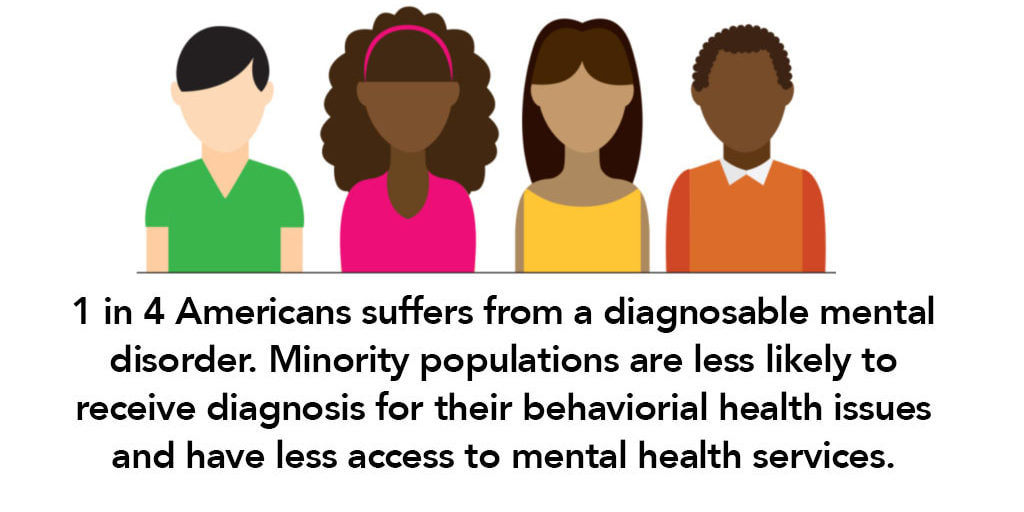|
Understanding the purpose of Minority Mental Health Awareness MonthThe pioneer of National Minority Mental Health Awareness Month is Bebe Moore Campbell. An author, Bebe was an unwavering advocate for the mentally ill and the founder of NAMI Urban Los Angeles. She lost her battle with brain cancer in 2006.
“Stigma is one of the main reasons why people with mental health problems don’t seek treatment or take their medication,” Campbell said in an NPR news article. “People of color, particularly African Americans, feel the stigma more keenly. In a race-conscious society, some don’t want to be perceived as having yet another deficit.” In 2008, the U.S. proclaimed July as Bebe Moore Campbell National Minority Mental Health Awareness Month. Today, over a decade later, many organizations, including Family & Children’s Services, are still dedicated to helping to reduce the stigma associated with mental illness and treatment, especially among cultures and communities where that stigma is more prevalent. Despite advances in health equity, disparities in mental health care persist. The Agency for Healthcare Research and Quality (AHRQ) reports that racial and ethnic minority groups in the U.S. are less likely to have access to mental health services, less likely to use community mental health services, more likely to use emergency departments, and more likely to receive lower quality care. Poor mental health care access and quality of care contribute to poor mental health outcomes, including suicide, among racial and ethnic minority populations. According to the Substance Abuse and Mental Health Services Administration (SAMHSA) and the CDC:
|
MediaPhotos + Video Categories
All
Archives
July 2023
|
|
Transcend, Transform, Take Flight!
|
PhoneOffice Numbers :
770-573-2696 404-549-2752 404-474-8887 |
LocationsCommunity Site
Pittsburgh Yards 352 University Ave SW Suite W-130 Atlanta, GA 30310 Administrative Office
17 Simpson Street Atlanta, GA 30308 Mailing Address
PO Box 92451 Atlanta, GA 30314 |
All rights reserved, Street Smart Youth Project LLC.


 RSS Feed
RSS Feed
